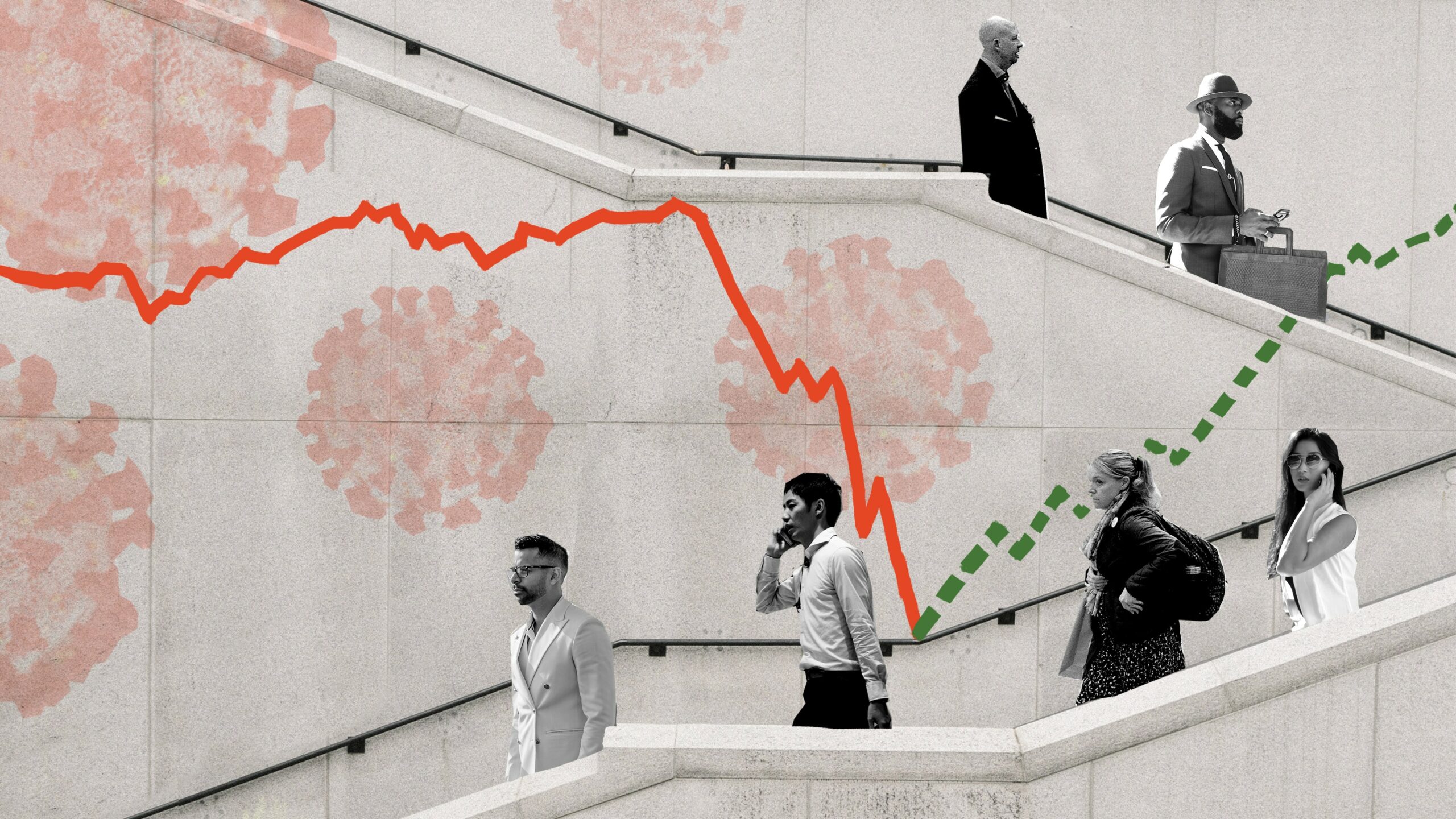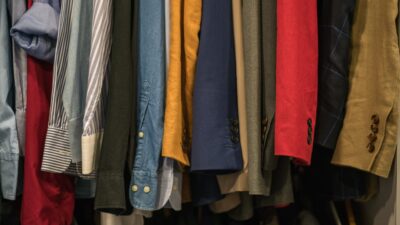Sandra Peter and Kai Riemer

Online activism on Corona Business Insights
From flooding hashtags to weaponising Disney’s copyright policing: what online activism and protests can learn from K-Pop fans during COVID-19.
As COVID-19 sets out to change the world forever, join Sandra Peter and Kai Riemer as they think about what’s to come in the future of business.
Shownotes
K-Pop fans are turning toward political activism
K-pop fans’ vigilante activism
K-pop fancams and weaponising Disney
BTS donates $ 1 million to Black Lives Matter
Our previous conversation on climate and the environment on Corona Business Insights
Climate activism in the time of COVID-19
Some public health experts say the protests are “essential”
This episode is part of a podcast series covering what COVID-19 will mean for the business world, where we look at the impact on the economy, businesses, industries, workers and society. This is part of our ongoing coverage of the impact of COVID-19 on the future of business.
Follow the show on Apple Podcasts, Spotify, Overcast, Google Podcasts, Pocket Casts or wherever you get your podcasts. You can follow Sydney Business Insights on Flipboard, LinkedIn, Twitter and WeChat to keep updated with our latest insights.
Send us your news ideas to sbi@sydney.edu.au.
Dr Sandra Peter is the Director of Sydney Executive Plus and Associate Professor at the University of Sydney Business School. Her research and practice focuses on engaging with the future in productive ways, and the impact of emerging technologies on business and society.
Kai Riemer is Professor of Information Technology and Organisation, and Director of Sydney Executive Plus at the University of Sydney Business School. Kai's research interest is in Disruptive Technologies, Enterprise Social Media, Virtual Work, Collaborative Technologies and the Philosophy of Technology.
Share
We believe in open and honest access to knowledge. We use a Creative Commons Attribution NoDerivatives licence for our articles and podcasts, so you can republish them for free, online or in print.
Transcript
This transcript is the product of an artificial intelligence - human collaboration. Any mistakes are the human's fault. (Just saying. Accurately yours, AI)
Intro From the University of Sydney Business School, this Sydney Business Insights.
Sandra And this is Corona Business Insights. I'm Sandra Peter.
Kai And I'm Kai Riemer.
Sandra And with everything that's happening out there, it's difficult to understand what COVID-19 will mean for the business world. So in this series, we've been unpacking its impact on business, economy, industry, government, workers and society, and looking at the effects of the pandemic.
Kai And this podcast is, of course, part of a larger initiative by the University of Sydney Business School. Our COVID business impact dashboard is a living initiative which we constantly update with insights and resources from our academics, from industry experts, Nobel Prize winners, movers and shakers.
Sandra And you can find all of these resources online at sbi.sydney.edu.au/coronavirus.
Kai And today we talk about how online activism and protests are shaped in the wake of COVID-19.
Sandra The nature of protests and how we respond to them has shifted quite dramatically since the beginning of this pandemic. On the one hand, we've seen climate activism slowly becoming less and less visible, with public protests and mass gatherings not taking place anymore as people were not allowed to congregate, and these forms of activism really disappearing altogether. We've also seen the rise of protests in the aftermath of George Floyd's killing and with the rise of the Black Lives Matter movement. And we've seen this happening both online and quite visibly with protests around the world in the streets. And we've also seen now in the midst of the pandemic, new forms of protest arising on TikTok, on Facebook, on Instagram, including some by the most unlikely groups of people.
Kai And we're, of course, talking about the impact that fans of K-pop music have had in the context of the Black Lives Matter protest. So on the one hand, and we've talked about this on The Future, This Week briefly, traditional movements such as the climate response movement have found it hard to uphold their momentum. There was a lot of visibility in the media, a lot of protests led by Swedish teenager Greta Thunberg, of course, before the COVID-19 pandemic hit. And this movement has found it very hard to move its protest online, there was some initial attempts using phone banks and hashtags on Twitter to get some sort of visibility going. Well, we have to say this has mostly been drowned out by the COVID-19 news. Unlike the Black Lives Matter movement, which has had much more success online to make itself heard, and which have most recently been amplified by some of the tactics of K-pop movement.
Sandra So in case you're not familiar, we're talking here about fans of South Korea's pop music scene, aka K-pop. And K-pop fans are not just South Koreans, they're around the globe. And last year’s estimates by the Korea Foundation were that there are about 99 million fans worldwide, being part of various fan clubs, around various K-pop acts. And over the last couple of weeks, we've seen a raft of articles written in major newspapers across the world that have picked up on the type of activism that K-pop fans have been part of. And to be clear, K-pop fans are largely apolitical. So these armies of fans are usually employed to boost album sales, or to make sure that their idols are featured in the news, or that they have trending hashtags and they're more gestures to position and to give visibility to the community rather than to make political statements. However, over the years they have taken stances on projects to create good. We've seen fundraising by K-pop fans for causes such as the Australian bushfires or buying trees and rice for charities across the world, or more recently, matching donations that K-pop artists have made to the Black Lives Matter movement to the tune of about a million dollars, given the K-pop artists back to hip hop culture and black music, which has been very influential in the genre.
Kai What we're saying here is not the K-pop is actually driving the Black Lives Matter protest, which in and by itself has gained enormous momentum. What we want to say is that the K-pop fandoms are interesting because these groups of people who follow different bands have honed certain skills in what they do in voting up their stars in radio shows and the like. They have gained certain digital skills that they bring to bear in this protest quite effectively. And so it's worth looking at what makes a good protest. And so, on the one hand, protests want to disrupt, you know, you flood the streets in the morning commute, you disrupt activity of ordinary people, which gets you attention. You want to spread your message effectively among the people that you're reaching with your protest. You might direct your activity at certain influential organisations, causing them financial loss, which is certainly happening here with the Trump campaign. And overall, you want mainstream visibility that the media picks up your cause. And so we want to look at a couple of things that the K-pop fans have done in the Black Lives Matter protest that they are also doing when they go about their business of promoting their brands.
Sandra So one of the ways in which K-pop fans have been doing this was by flooding certain hashtags with K-pop fancam videos. These are close-ups that they film during a live performance of a K-pop idol, which they then tweet, or put up on Instagram, or on TikTok, or on dedicated platforms to drown out hashtags that white supremacists use.
Kai Or they use these fancam videos to flood a Dallas Police Department app that existed basically for people to upload tips for law enforcement, that was later used during the Black Lives Matter to submit videos of protesters. It had to be taken offline because it couldn't cope with the amount of videos that K-pop fans were posting. And these are, of course, disruptive measures that are used by a myriad of K-pop fans to take down or render useless certain measures that they see antithetical to the Black Lives Matter movement.
Sandra Other, more sophisticated methods have involved, for instance, weapon Disney's very heavy-handed copyright policing, where Disney is known to go after anyone who uses their content in video clips or mashups on the Internet. So what they will do is put the soundtrack or put background music to clips off alt-right commentators, which would then be taken down by Disney for violating their terms and conditions.
Kai And this is an interesting measure that can also be used in street protests where people would go and disrupt with Disney music reporters of alt-right media outlets who might be filming the protests, and render those recordings useless because Disney's algorithms would later detect that there was music in the background and demand for these videos to be taken down.
Sandra Online activism has also employed other tactics, such as rickrolling for justice, not just to disrupt things, but to spread the message that in this case K-pop fans wanted to get through. In case you are not familiar, this refers to Rick Astley's "Never Gonna Give You Up" music video, which has been used as a prank on the Internet for years now, where you click on the link and then you end up listening to "Never Gonna Give You Up". Well, in this case, protesters would use clickbait pertaining to celebrity gossip, for instance, to actually convey important messages about the protest.
Kai But then rather than reading about Beyoncé’s new boyfriend, you would then read through serious messaging around Black Lives Matter. So basically, ways to get your message in front of people who are not suspecting it.
Sandra But probably the most visible protest in the last couple of weeks was the K-pop fans apparent involvement in the turnout of Donald Trump's rally in Tulsa. Both K-Pop fans and TikTok users came forward in the aftermath of this event, said that they had the requested tickets to the event, inflating expectations for the turnout, also potentially preventing people who wanted to attend the rally from going there.
Kai And even though we don't know the extent to which this has happened, it is certainly plausible because K-pop fans are used to these kinds of tactics when they try to score tickets for concerts for their beloved stars. They employ things like scripting in the browser to increase their chances of getting tickets. So it's quite plausible that they would bulk order with fake email addresses lots and lots of these tickets, and potentially causing the Trump campaign significant financial loss because apparently they ordered and built an outdoor stage that was never being used because the eventual turnout was much, much less than the campaign expected on the basis of all the ticket pre-orders.
Sandra And whilst there are many other tactics that have been employed online, both for protesting and for activism, such as monetising YouTube videos or other social media content for good. The K-pop movement does give us an insight into some ways in which some of the protest can move online, and can be effective in both raising awareness and spreading a message online. And of course, these are not tactics that can easily be ported to other causes. This community of fans has extensive knowledge about how to conduct these activities online. So it's not just that some communities might not have the knowledge to employ such tactics online or indeed the volume of supporters to enable effective online mobilisation. There's also the fact that there are many communities that are affected by things like climate change that are not necessarily communities that are connected, were community based forms of activism are much harder to replace through online tactics or where indeed a physical presence is required to make a true impact.
Kai And so while we think that we can learn a thing or two from K-pop activism, it remains to be seen what will become of online activism more broadly.
Sandra And this is where we want to leave it today. This has been Corona Business Insights. Until next time.
Kai Thanks for listening.
Sandra Thanks for listening.
Outro From the University of Sydney Business School, this is Sydney Business Insights, the podcast that explores the future of business.
Close transcript







